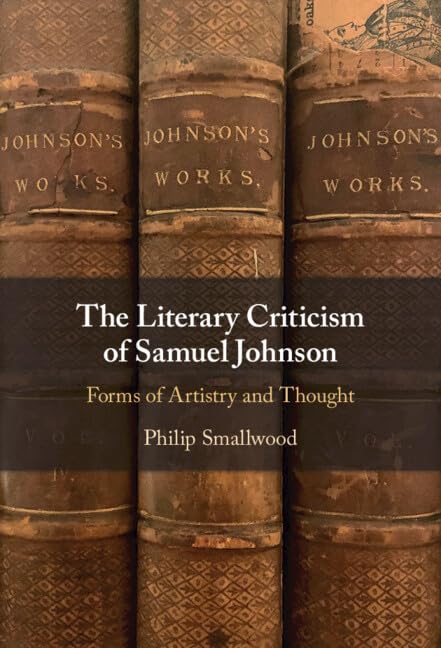In The Literary Criticism of Samuel Johnson: Forms of Artistry and Thought, Philip Smallwood celebrates the emotional power and wisdom of Samuel Johnson’s literary criticism. Poetical judgments were no mere exercise in dry evaluation for Johnson but reveal a consciousness of how the abyss of the human heart can inform criticism's practice and thought; such judgments reflect a potential for deep emotional responsiveness in Johnson's works of literary criticism, whether Johnson is treating of Shakespeare’s plays or the poetry of his own time. In this provocative study, Smallwood argues for experiencing Johnson’s critical texts as artworks in their own right. The criticism, he suggests, often springs from emotional sources of great personal intensity and depth, inspiring translation of criticism into poetry and channelling the poetic potential of critical prose. Through consideration of other critics, Smallwood highlights singularities in Johnson’s judgments and approach, showing how such judgments are irreducible to philosophical doctrines. “Ideas”, otherwise the material of criticism’s propensity to systems and theories, may exist for Johnson as feelings that “slumber in the heart.” Revealing both humour and intellectual reach, Smallwood frames Johnson’s criticism in unresolved ironies of time and forms of historical change.
The new study has drawn praise from the reviewer for the London Review of Books for 25th April, 2024 as “expansive, patient, and sympathetic.”
For more information, see the Cambridge University Press website.
